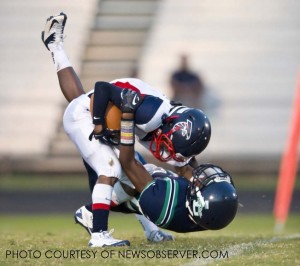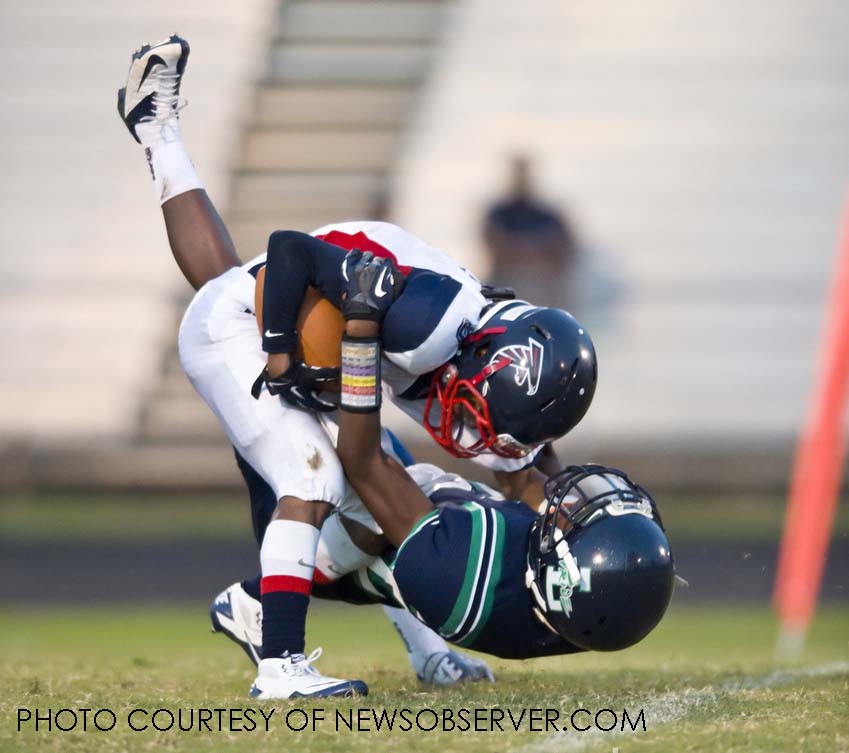
On the warm night of August 30, 2012 the varsity football team prepared to play Jordan High School from Durham at home. Running on to the green, grassy field, Derahjai Robinson and his team were excited and ready to play in this game.
During the fourth quarter, among the roar of screaming fans and the smell of freshly-cut grass, Robinson initiated a helmet-to-helmet collision with another player. This player was a heavyset lineman from Jordan high school– a tall, wide, muscular boy. Robinson was dazed, but overall felt okay. A few minutes later, he began feeling dizzy and seeing double. His head was hurting, and he had to sit out.
Concussions are common occurrences in the sport of football because it is a contact sport.
“The hit seemed like a regular hit,” said Robinson. “I just kept playing after it happened. I didn’t realize my vision was starting to blur until a few minutes later.”
Robinson had head-on contact with a heavy-bodied lineman from Jordan’s team during the kickoff. He delivered the blow, but he was the one who ended up with the concussion.
“When I got home, I had a really bad headache. I called Mrs. Ennis and told her what was going on. She told my mom to call the doctor and to see them next day because I probably had a concussion.”
Susan Ennis, Leesville’s athletic trainer, gave Robinson a number for the concussion hotline. He set up an appointment for the next morning; he had a mild concussion.
When an athlete is tested for a concussion, they are given a range of tests– they are given the line test, where they are told to walk forwards and then backwards in a straight line. They are also given a balance test and instructed on how to take the IMPACT test on a computer.
“The concussion didn’t really affect me much except for right after it happened. I was told to take Ibuprofen three times a day to help the pain,” says Robinson. “Coach Ennis was really helpful. She told me to take a cold shower, and to not go to sleep right after the game.”
Erica Robinson, Derahjai’s mother, kept a watchful eye on him after the game.
“I didn’t see the hit, so I didn’t know he was hurt until he complained about a headache in the car,” she said. “When we called the doctor they told him to stay in the dark and told me to keep an eye on him throughout, which I did.”
Robinson was told not to text, use the computer, or watch TV for a few days after the injury. He was given ibuprofen to take three times a day for a couple days after the injury.
Ms. Robinson says that this concussion hasn’t changed her opinion on her son playing football.
“The first few games after the injury I felt like I had to keep an eye on him, but after that I got used to it. I didn’t want him to stop playing. It’s really just something that comes with the game.”

Leave a Reply